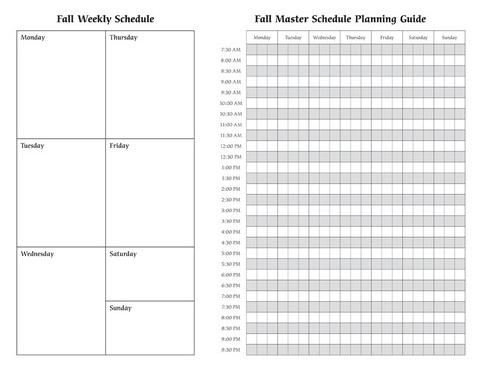A recent Harvard Business Review suggested the best way to achieve your goals is to not demand too much of yourself.
That’s not to say set your goals low — but if you want to reach a goal, don’t make it harder than it needs to be to get there.
In a post headlined “The Only Way to Get Important Things Done,” Tony Schwartz advocates making it as automatic as possible to do what matters — for example, scheduling your exercise for the same time every day so you don’t have to make a decision about whether you feel like going to the gym and how to fit it into your day.

Schwartz writes:
It turns out we each have one reservoir of will and discipline, and it gets progressively depleted by any act of conscious self-regulation. In other words, if you spend energy trying to resist a fragrant chocolate chip cookie, you’ll have less energy left over to solve a difficult problem. Will and discipline decline inexorably as the day wears on.
“Acts of choice,” the brilliant researcher Roy Baumeister and his colleagues have concluded, “draw on the same limited resource used for self-control.” That’s especially so in a world filled more than ever with potential temptations, distractions and sources of immediate gratification.
At the Energy Project, we help our clients develop something we call rituals — highly specific behaviors, done at precise times, so they eventually become automatic and no longer require conscious will or discipline.
The proper role for your pre-frontal cortex is to decide what behavior you want to change, design the ritual you’ll undertake, and then get out of the way. “It is a profoundly erroneous truism that we should cultivate the habit of thinking of what we are doing,” the philosopher A.N. Whitehead explained back in 1911. “The precise opposite is the case. Civilization advances by extending the number of operations we can perform without thinking about them.”
I’ve been playing with this approach recently, writing to-dos on my list each day including “exercise,” “take vitamins” and “practice piano.” These are all things I know I should do, but because I’m really motivated by checking items off my list, seeing them in writing helps make sure I don’t skip a day.
I also put an appointment in my Outlook calendar every work day to hold one hour for whatever I designate as that day’s top goal. It’s especially helpful because I know I’m most productive in the afternoon so my calendar chimes with a reminder to put that after lunch brainpower to use on what matters.
Now I think the next step is to figure out rituals to further advance my professional productivity: restricting email and social media to designated times of day, establishing set days and times for business development, reporting on sales and web traffic, etc. Deciding that Thursday morning is when I check online traffic, for example, can both keep me consistently paying attention without obsessively wasting time doing that whenever it pops into my mind.
I like the idea of freeing up some my limited reservoir of self control to help me to bigger, better things.
Do you use rituals to help you achieve your goals? Does it help?
Past blog posts on setting and achieving goals:
- HBR’s nine tips for achieving what you want
- Guidance to help you get lucky
- Feel the fear and do it anyway
- Setting my goals for 2011 as a comprehensive view of my life
- Be careful what you wish for: setting goals you’re sure you want
- Christine Kane: How to Create Anything (Even When You’re Scared, Inexperienced and Don’t Believe in Yourself)


10 Comments
Leave a reply